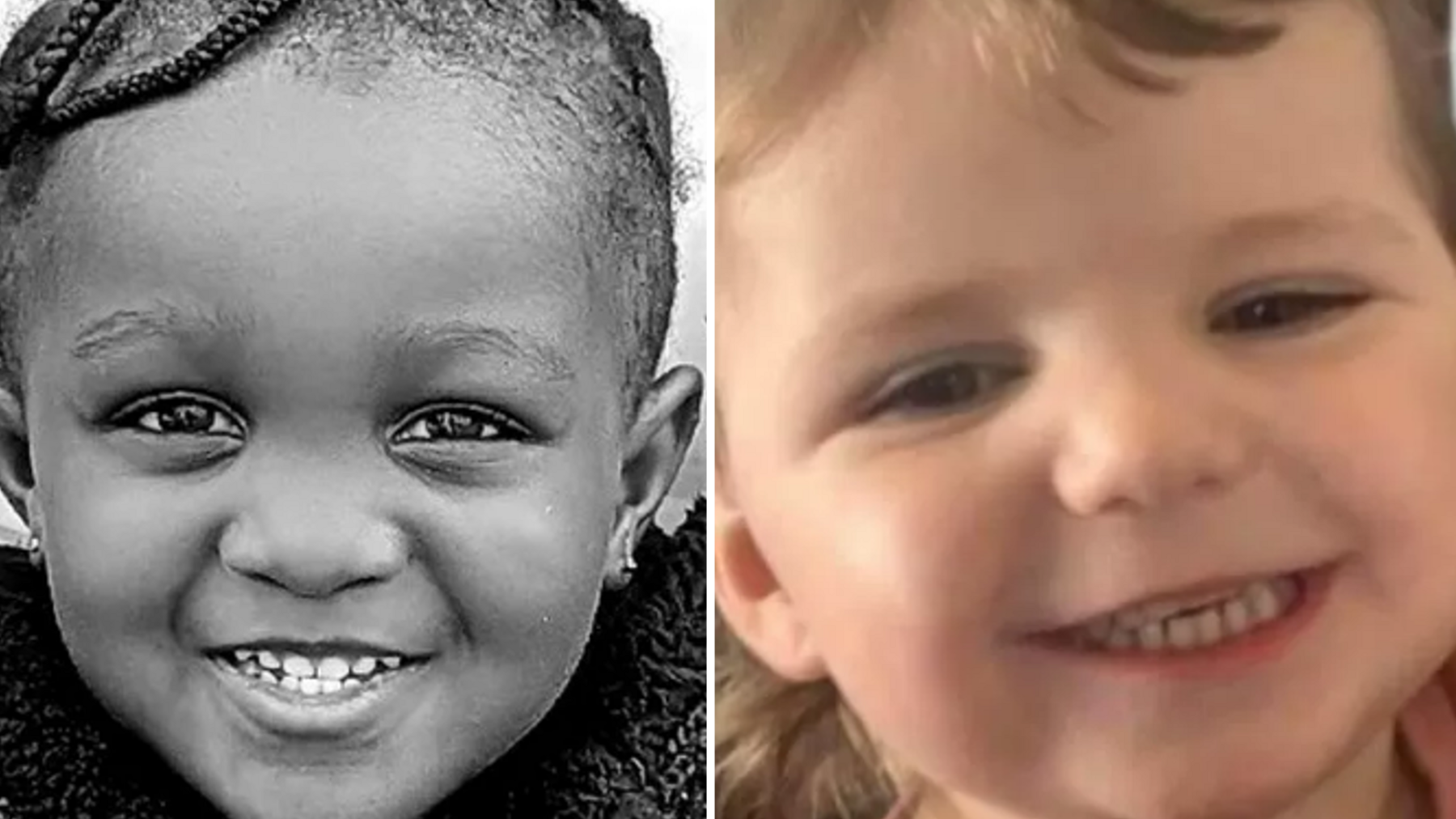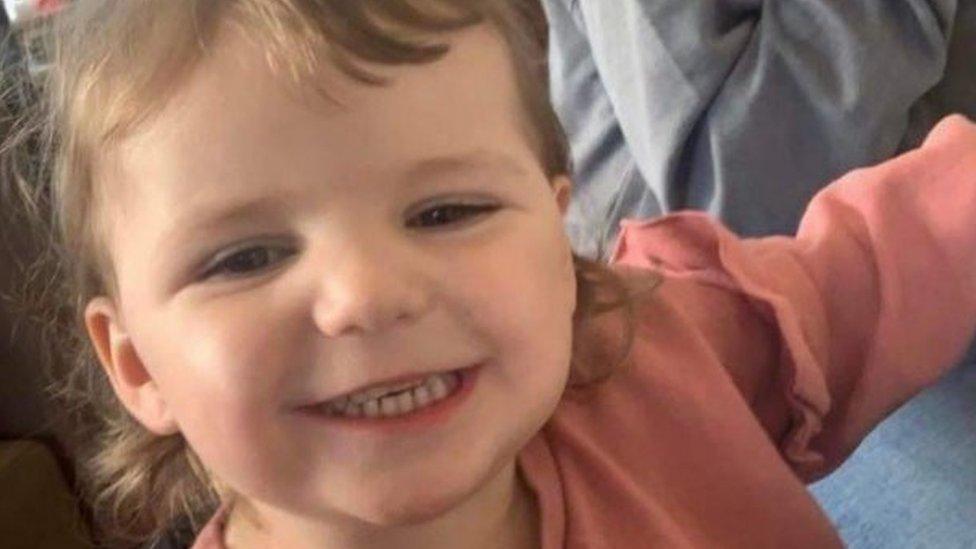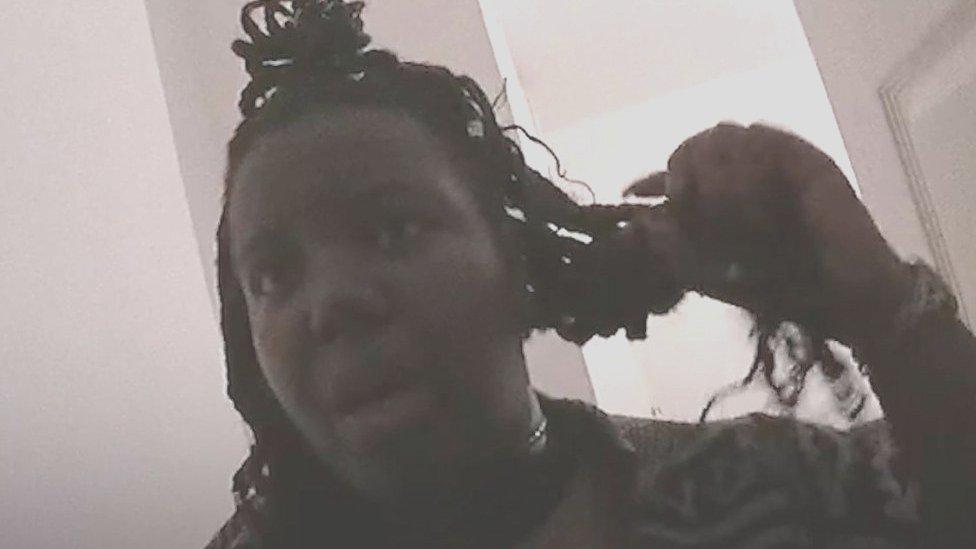'Opportunities missed' to help murdered toddlers

Dwelaniyah Robinson and Maya Chappell were killed within three months of each other
- Published
Opportunities to help murdered toddlers Maya Chappell and Dwelaniyah Robinson may have been missed, according to a report.
The children died within months of each other in 2022, with two-year-old Maya killed by her mother’s boyfriend Michael Daymond and Dwelaniyah, three, by his mother Christina Robinson.
A Child Safeguarding Practice Review (CSPR) published on Wednesday found no evidence the deaths could have been prevented, but said agencies could have shown "more professional curiosity".
It highlighted several opportunities for intervention.
Neither family were known to statutory services, but similarities in the cases prompted the Durham Safeguarding Children Partnership (DSCP) to commission a review.
Examples of effective practice were found, but the report highlighted several critical moments where professionals could have stepped in to help with "hidden vulnerabilities" around domestic abuse, mental health, religion and parenting.
Gender bias
Maya was shaken to death by her mother Dana Carr's new boyfriend, Michael Daymond, at her Shotton Colliery home in September 2022.
He was found guilty of murder and Carr of child cruelty and allowing the death of a child.
Prior to the toddler's death, Maya's father had asked police to disclose information about Daymond under the Domestic Violence Disclosure Scheme, known as Claire's Law, but officers closed the case after Carr told them she was no longer in a relationship.
The decision was a missed opportunity to assess risks about Daymond and collate details about him, the report found.
It also highlighted possible gender bias and the need to take fathers' concerns seriously.
'Culturally sensitive'
In unrelated circumstances, Dwelaniyah, from Ushaw Moor in County Durham, died after being violently shaken by his mother.
Christina Robinson had subjected him to horrific abuse in the weeks before his death, claiming she was following teachings of the Bible.
The review said lessons should be learned around the importance of exploring the impact of religious beliefs on the lives of children.
A failure to do so represented "a significant omission from services in understanding the child’s experience, possibly because of a desire to be culturally sensitive,” the report said.
In both cases, there were a number of house moves and changes of the children's primary carer, while police records also reflect concerns around domestic abuse in both families.
“If there is no curiosity about the children’s whereabouts and the family dynamics, any potential support needs cannot be explored,” the report said.
'Deeply distressing'
The impact of Covid-19 on health services affected both families, with each child seen by several different health visitors because of team changes and the need for agency staff.
It meant little continuity of care and potentially complicated the transfer of information among services.
The review said a call for help with Maya's behaviour from her mother could have been a chance to provide more targeted support for the toddler's family, but no action was taken prior to her death.
Dave Ashton, chair of the Durham Safeguarding Children Partnership, said the review's findings had been shared with agencies, who are working to implement the recommendations.
He added: “These are deeply distressing cases resulting in the tragic deaths of two young children, and our thoughts and sympathies are very much with all those who loved and cared for them.
“We are committed to learning from the circumstances of each case."
Follow BBC North East on X (formerly Twitter), external, Facebook, external and Instagram, external. Send your story ideas to northeastandcumbria@bbc.co.uk.
Related topics
More stories from BBC North East and Cumbria
- Published21 December 2023

- Published22 March 2024
